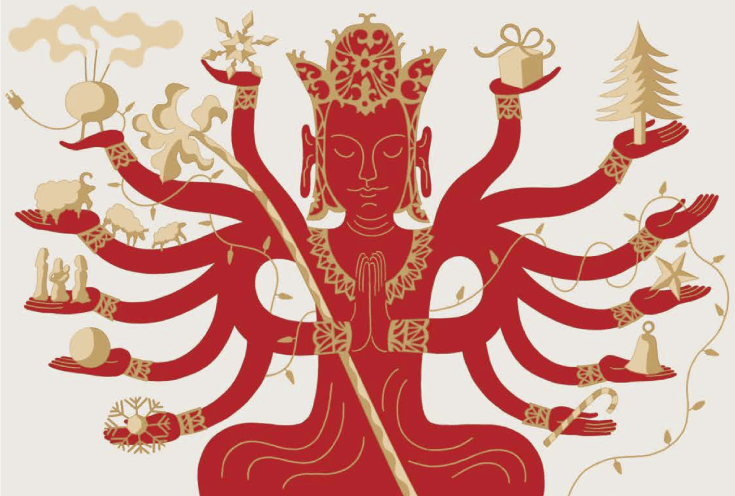“May we with all beings realize the emptiness of the three wheels, giver, receiver, and gift.”
Zen practitioners chant these words before eating a meal. They remind us that the food about to be eaten has not been earned; it’s a gift. But this gift is not to be understood in the usual way. “The emptiness of the three wheels” means that this giving isn’t a beneficent act one performs for another, an act you can take credit for or feel worthy or unworthy of. A Zen practitioner about to eat a meal remembers that giving is life—that everything is giving, everything is given. There are no separate givers, receivers, or gifts. All of life is always giving and receiving at the same time. This is our practice and our joy. So we practice giving—both receiving and giving gifts—in this spirit.
Some gifts we see as gifts (the birthday or holiday gift) and others we usually don’t see as gifts (the gift of sunlight, the gift of breath). The practice of giving extends to all forms of giving.
The more you study it, the more it seems that giving is the whole of the Buddha way.
Traditionally, there are three things to give: material gifts, the gift of dharma, and the gift of freedom. But really there are many more things to give: the gift of listening, the gift of love, the gift of creation, attention, and effort. To make a poem or a painting is to practice giving, as is cooking a meal, cleaning a room, putting a single flower in a vase. In his fascicle “Four Methods of Guidance for Bodhisattvas,” Dogen writes that to launch a boat, build a bridge, and earn a living are acts of giving. To be willing to be born—and to die—is to practice giving.
I usually think of four simple ways to practice giving: giving yourself to yourself (that is, to be generous in your attitude toward yourself); giving materially to others (giving money or other material gifts to those in need and to those not in need); giving fully and without reservation the gift of your presence and respect; and giving yourself completely in your meditation practice.
There are six paramitas or perfections that define the Mahayana path: giving, ethical conduct, energy, patience, meditation, and wisdom. It is no wonder that giving is the first of these. The more you study it, the more it seems that giving is the whole of the Buddha way.

